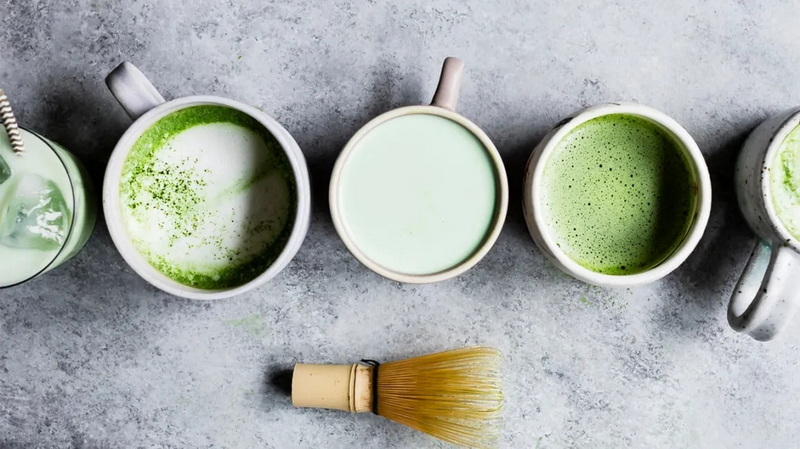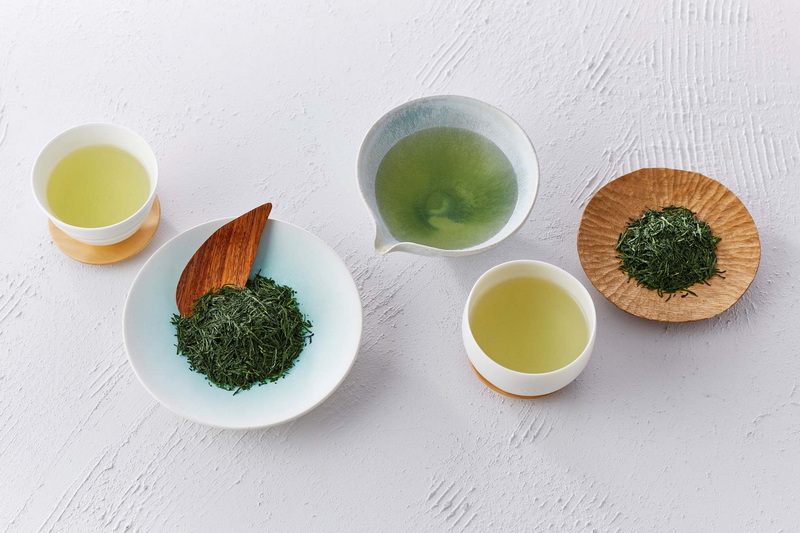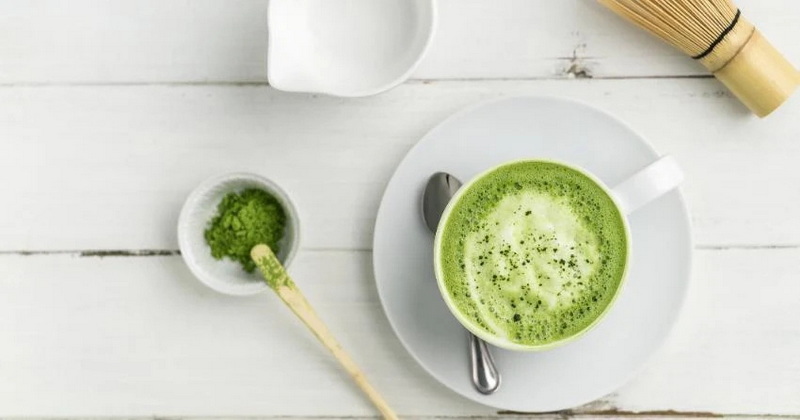Content Menu
● Introduction to L-Theanine
>> Health Benefits of L-Theanine
● Applications in Functional Foods
● Future Developments
● Challenges and Opportunities
● Conclusion
● Frequently Asked Questions
>> 1. What is L-theanine, and where is it found?
>> 2. How does L-theanine promote relaxation?
>> 3. Can L-theanine improve sleep quality?
>> 4. How is L-theanine used in functional foods?
>> 5. What are the potential future applications of L-theanine in food products?
● Citations:
Green tea, derived from Camellia sinensis, has been a staple in many cultures for centuries, not only for its unique flavor but also for its numerous health benefits. One of the key components responsible for these benefits is L-theanine, a non-proteinogenic amino acid that contributes significantly to the relaxation and cognitive enhancement effects associated with green tea consumption. In this article, we will explore the best ways to utilize green tea L-theanine 60% in functional foods, highlighting its health benefits, applications, and potential future developments.

Introduction to L-Theanine
L-theanine is a unique amino acid found predominantly in green tea. It is known for its ability to promote relaxation, reduce stress levels, and enhance cognitive functions such as focus and memory. Unlike other amino acids, L-theanine is not incorporated into proteins but instead acts as a bioactive compound with various health benefits, including antioxidant, anti-inflammatory, and neuroprotective effects.
Health Benefits of L-Theanine
1. Relaxation and Stress Reduction: L-theanine is well-documented for its calming effects, which can help reduce stress and anxiety by promoting alpha brain wave activity. This makes it particularly beneficial for individuals dealing with high-pressure lifestyles or those seeking a natural way to unwind.
2. Cognitive Enhancement: It improves attention span and focus, contributing to better working memory and executive function. This is especially useful for students, professionals, and anyone requiring mental clarity and acuity.
3. Sleep Quality: L-theanine can aid in improving sleep quality by reducing stress and promoting relaxation before bedtime. This is particularly beneficial for individuals experiencing insomnia or disrupted sleep patterns.
4. Weight Management: The umami flavor of L-theanine can increase feelings of fullness, potentially aiding in weight loss when combined with a calorie-controlled diet. This makes it an interesting ingredient for weight management products.
5. Cardiovascular Health: Some studies suggest that L-theanine may help lower blood pressure and improve cardiovascular health by reducing stress and promoting relaxation.
Applications in Functional Foods
L-theanine's versatility and health benefits make it an ideal ingredient for various functional foods. Here are some innovative applications:
1. Beverages: L-theanine can be added to teas, juices, or even water to enhance relaxation and cognitive function. For example, a cold-water brewed green tea rich in L-theanine can help regulate intestinal flora and alleviate obesity.
2. Baked Goods: L-theanine enriched fractions can be used to make healthy bread that not only tastes good but also provides health benefits like extending shelf life by inhibiting bacterial growth.
3. Desserts: Adding L-theanine to desserts like mango sorbet can create functional foods that reduce stress while providing a unique flavor experience.
4. Nootropic Beverages: Combining L-theanine with other ingredients like pine bark and blackcurrant can enhance mental clarity and reduce fatigue, making it ideal for athletes and individuals with high mental demands.
5. Supplements: L-theanine is also available as dietary supplements, offering a convenient way to incorporate its benefits into daily routines.

Future Developments
As research continues to uncover the benefits of L-theanine, its applications in functional foods are expected to expand. Potential future developments include:
- Gluten-Free Products: L-theanine could be used to reduce immune responses in gluten-containing foods, making them more accessible to individuals with gluten intolerance.
- Personalized Nutrition: With advancements in personalized nutrition, L-theanine could be tailored into diets based on individual health needs and genetic profiles. This could involve integrating L-theanine into customized meal plans to enhance cognitive function or reduce stress levels.
- Sustainable Production: Future developments may focus on sustainable production methods for L-theanine, ensuring that its extraction and use do not harm the environment. This could involve using green technology or biotechnology to enhance yield and purity.
Challenges and Opportunities
While L-theanine offers numerous benefits, there are challenges associated with its integration into functional foods. These include:
1. Flavor Profile: L-theanine has a distinct umami taste, which can be challenging to incorporate into certain recipes without altering the flavor profile.
2. Bioavailability: Ensuring that L-theanine remains bioavailable in different food matrices is crucial for its effectiveness.
3. Regulatory Frameworks: Compliance with food safety regulations and labeling requirements is essential for the successful marketing of L-theanine enriched products.
Despite these challenges, the opportunities for innovation are vast. For instance, combining L-theanine with other bioactive compounds can create synergistic effects that enhance overall health benefits.
Conclusion
L-theanine from green tea offers a wide range of health benefits, from relaxation and cognitive enhancement to potential weight management and improved sleep quality. Its applications in functional foods are diverse, ranging from beverages and baked goods to desserts and nootropic drinks. As research continues to explore its benefits, L-theanine is poised to become a key ingredient in the development of innovative, health-promoting foods.

Frequently Asked Questions
1. What is L-theanine, and where is it found?
L-theanine is a non-proteinogenic amino acid primarily found in green tea (Camellia sinensis). It is known for its relaxation and cognitive enhancement properties.
2. How does L-theanine promote relaxation?
L-theanine promotes relaxation by increasing alpha brain wave activity, which helps reduce stress and anxiety levels.
3. Can L-theanine improve sleep quality?
Yes, L-theanine can aid in improving sleep quality by promoting relaxation and reducing stress before bedtime.
4. How is L-theanine used in functional foods?
L-theanine is used in various functional foods such as beverages, baked goods, desserts, and nootropic drinks to enhance relaxation, cognitive function, and overall health.
5. What are the potential future applications of L-theanine in food products?
Future applications may include gluten-free products, personalized nutrition plans tailored to individual health needs, and sustainable production methods.
Citations:
[1] https://pmc.ncbi.nlm.nih.gov/articles/PMC9014247/
[2] https://calgaryneuropathy.com/60-l-theanine/
[3] https://www.frontiersin.org/journals/nutrition/articles/10.3389/fnut.2022.853846/full
[4] https://www.mdpi.com/2306-5710/2/2/13
[5] https://www.nature.com/articles/d42473-023-00394-0
[6] https://www.healthline.com/health/l-theanine
[7] https://www.jstage.jst.go.jp/article/nogeikagaku1924/72/2/72_2_153/_article
[8] https://www.medicalnewstoday.com/articles/324120
[9] https://www.timehealth.co.uk/product/l-theanine/






























